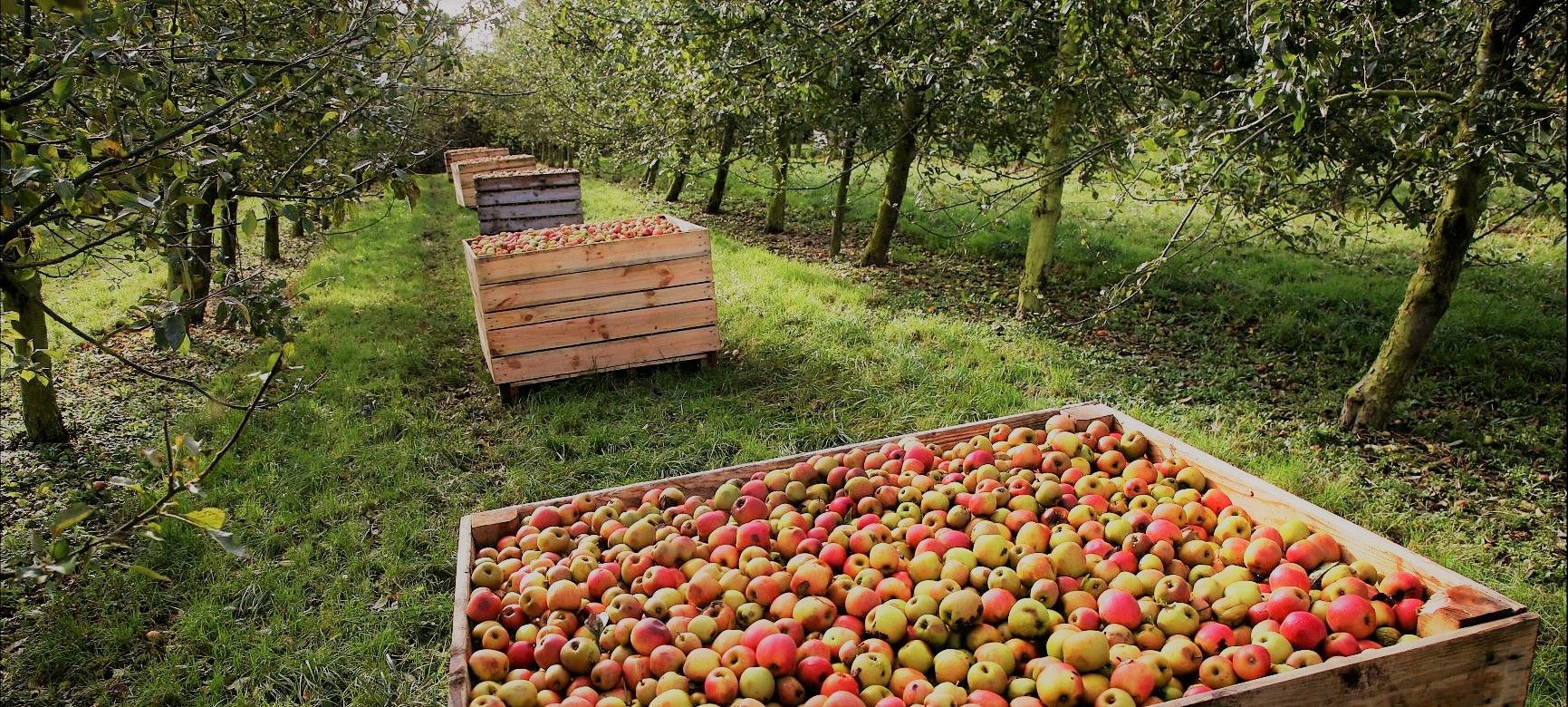World Calvados Week runs from October 16 to 22 and is an opportunity for leading brands like Avallen to tell both their story and why there is still so much to discover about Calvados over all.
Calvados is much more than just a drink; it’s a cultural expression of the region, a testament to craftsmanship, and a guardian of sustainable farming practices. At least that is what’s the Normandy PR has to say.
But it can very much point to an enthralling history that is as arguably rich as the apple orchards that flourish in the region known as the ‘larder of France’. It might claim to have roots dating back to 1553, it wasn’t until the 17th century that Calvados started gaining prominence outside of its Normandy stronghold.
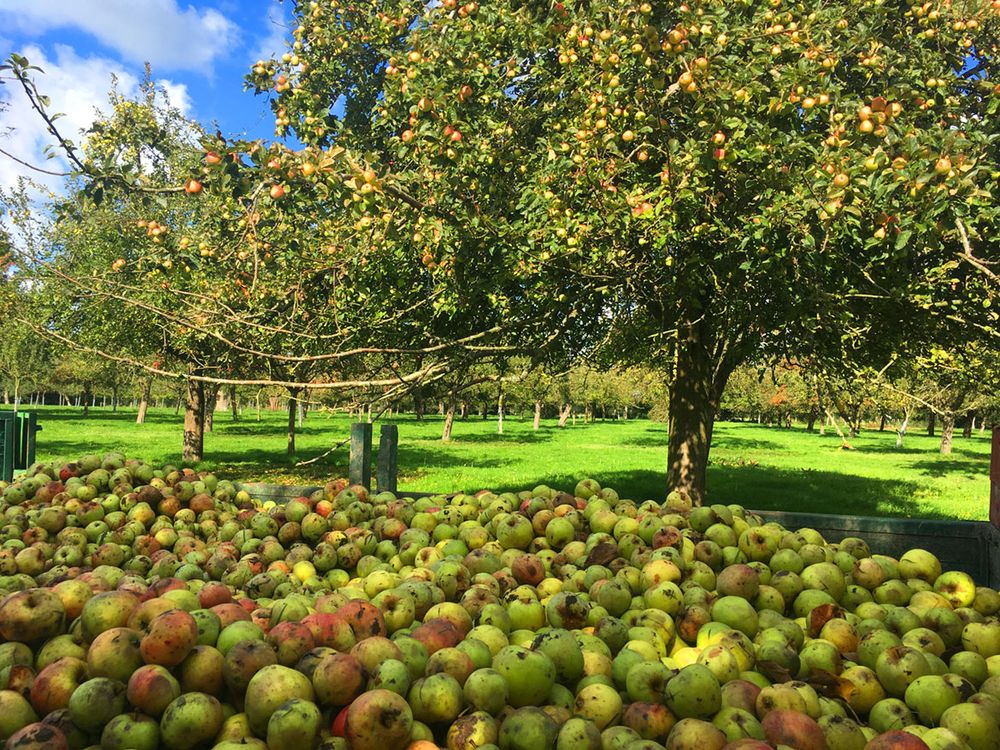
Normandy: the home of apples and Calvados
During the French Revolution, the practice of distilling apples into brandy became more widespread, thanks to the government’s hefty taxation on salt and other essential goods. This led to an increased surplus of apples in Normandy, which were then turned into the beloved Calvados to preserve their flavour long after harvest was finished. Over the years, the art of Calvados production continued to evolve, leading to the distinct and varied flavours we savour today.
From blossom to bottle – the art of Calvados production
The apples destined for Calvados production are carefully selected and harvested from thousands of orchards across Normandy. This traditional approach ensures only the finest apples find their way to the distilleries, where they are gathered, chopped, juiced, and left to naturally ferment, and allow their sugars to convert into alcohol.
After distillation, the Calvados is left to mature in oak barrels for a minimum of two years, where it slowly absorbs the character of the wood, gaining complexity, depth, and a golden hue. The aging process combined with the crisp, fresh apple distillate, is what gives Calvados its signature notes of balance and elegance.
The Three AOCs
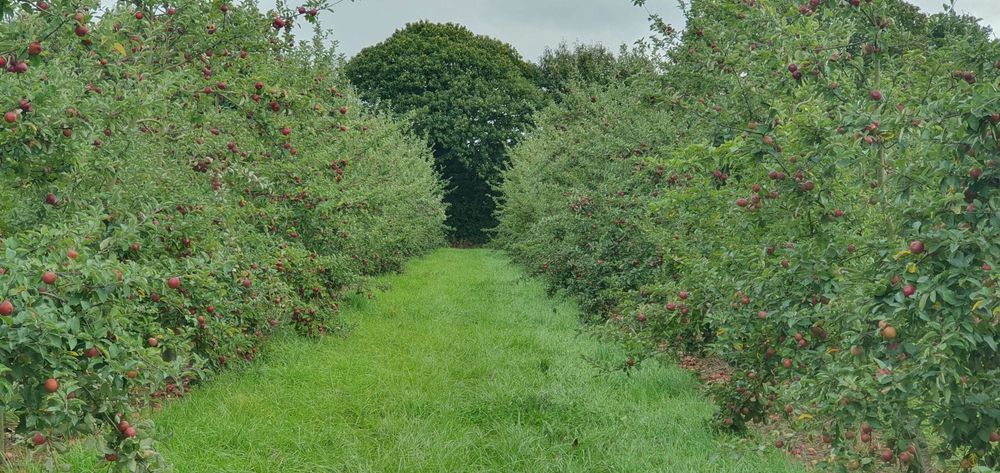
There are apples and then there are apples according to Normandy’s AOC system
Normandy is a large and varied part of France, and the region’s terroir significantly influences the character of the brandy. To protect and celebrate this diversity, Calvados has been classified into three distinct Appellations d’Origine Contrôlée (AOCs): Calvados, Calvados Pays d’Auge, and Calvados Domfrontais.
1. Calvados: The largest of the AOCs, Calvados spans the largest region of Normandy and the majority of production, resulting in a wide range of styles. Here, you’ll find a broad spectrum of flavours, from fruity and youthful, which much be aged for two years, to rich and mature, some reaching 50 years old.
2. Calvados Pays d’Auge: Nestled in the heart of Normandy, the Pays d’Auge AOC boasts the most prestigious Calvados. Its stringent regulations require double distillation in copper pot stills and aging in oak barrels for a minimum of two years, resulting in a refined and complex spirit.
3. Calvados Domfrontais: In the southern reaches of Normandy, this AOC stands out for its unique blend of apples and pears, which must make up a minimum of 30% of the crop, and aged for an additional year. The combination creates a softer, fruitier Calvados with distinct pear notes.
The Orchards
Calvados producers such as Avallen look to champion sustainable practices that preserve not only the brandy’s quality but also the rich ecosystems that nurture its apples.
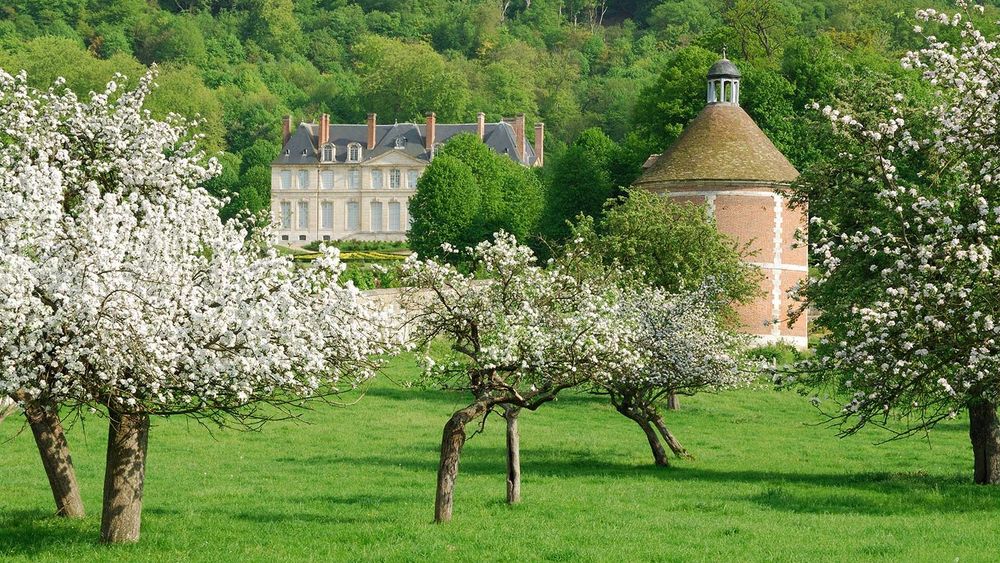
Orchards are very much part of the landscape in Normandy
One of the notable aspects of Calvados production are traditional orchards. Unlike the monocultures that produce the raw materials for most alcohol, the orchards encourage biodiversity by maintaining diverse flora and fauna in and around the apple trees. These orchards are not just places of production; they’re thriving ecosystems filled with bees, insects, birds, flowers, and mammals.
Calvados regulations do not permit irrigation of the orchards, which when combined with water recycling processes at the distilleries minimises the impact on local water sources. Additionally, the apple trees themselves play a crucial role in carbon sequestration, aiding in the fight against climate change by capturing and storing carbon dioxide from the atmosphere.
The use of fertilisers and pesticides is tightly regulated to protect the environment and ensure the apples grow naturally, without compromising the delicate balance of the ecosystem. This commitment to sustainable agriculture not only benefits the environment but also elevates the quality of the apples used in Calvados production.
A taste of tradition
Calvados has seen a real resurgence in recent years, with an increasing interest in the category thanks to its sustainable credentials, quality of what is being produced. You can now pop into many of the world’s best bars for a calvados cocktail or find it on the back bars of a great number of venues from Australia to Costa Rica.
Some brands that are leading the calvados revolution include:
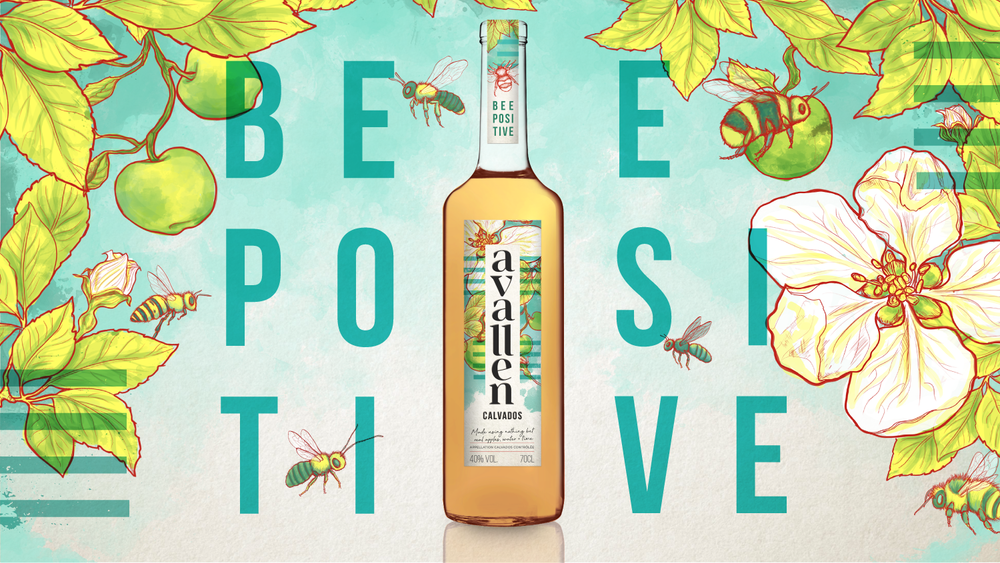
Planet positive is very much the message of Avallen – a new look Calvados brand that is helping to bring fresh interest into the category
Avallen: Avallen is a thoroughly modern, planet positive Calvados that bills itself at the worlds most sustainable spirit brand. Its Calvados is a young expression that puts fresh apple flavour front and centre. Avallen’s commitment to a greener world is reflected in B Corp certification and 1% for the planet membership scheme.
Founded by Tim Tim Etherington-and Stephanie Jordan-Balmforth it hopes to be more than a brand of Calvados but of “a force for good” and have run a series of events and webinars in order to share the expertise of sustainability and hospitality experts and produced a series of reports that shows the steps being taken with Calvados can have a wider impact on other sustainability programmes.
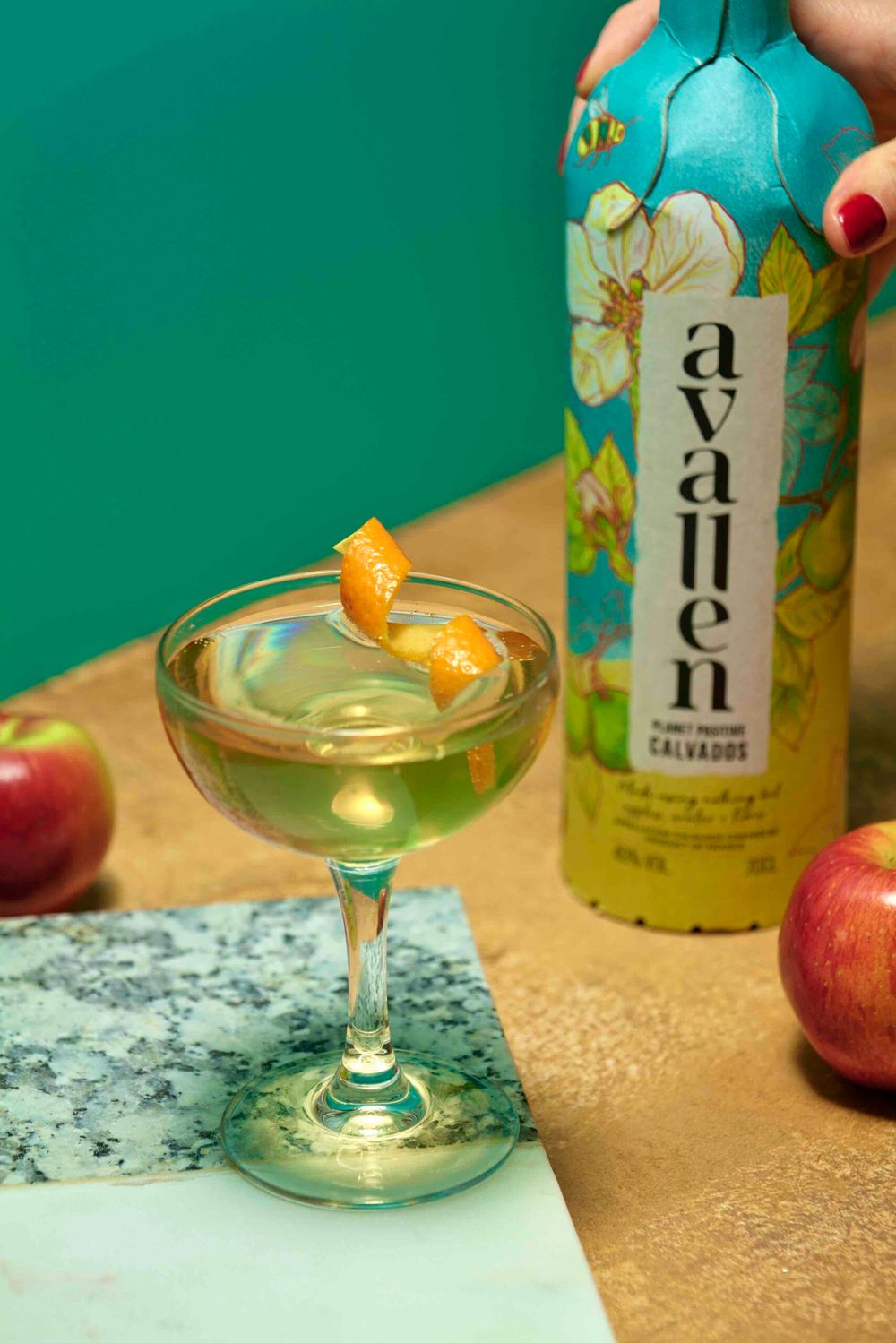
Calvados with a twist..Avallen is looking to get Calvados moving again on back bars
Christian Drouin:With a history dating back to 1960, Christian Drouin is widely recognised as one of the best Calvados Pays d’Auge with a wide range of bottlings that are particularly esteemed for their complexity and elegance.
Calvados Coquerel: A family-owned producer since 1937, Calvados Coquerel prides itself on its craftsmanship and innovation. They produce a range of creative products, including a number of different barrel finished expressions and single year vintages.
List of bars taking part in World Calvados Week: October 16-22
Bristol
Milk Thistle
Cardiff
Lab 22
London
The Cavendish
Manchester & Liverpool
Cottonopolis ( Manchester) – Special from the 9th
Pray Tell (Manchester)- To be listed as house Calvados
Bacino (Liverpool)
Daisy (Manchester)
Public (Manchester)
Evelyns (Manchester)
Scotland
Sylvan
Devil of Brooklyn
Bar & Tender
Caley Bar @ Waldolf Astoria
Charlie Browns
Buzzworks
